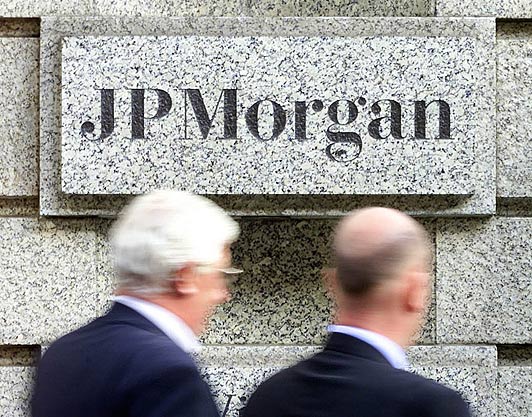JPMorgan’s Bad Timing
Yesterday morning I heard on CNBC that the Chief Investment Officer (CIO) retired suddenly. When I arrived at my office, I received an email from a JPM banker forwarding a “timely report” prepared by their CIO! Bad timing!
Also bad timing, on Thursday there was an announcement that JPM lost $2 billion in hedging transactions. These are the same types of transactions they have been lobbying the Treasury to curtail enforcement of, calling these compliance regulations “unnecessary and unfair” for this type of trading.
I also noticed that JPM has their annual meeting today so the timing of the loss will likely affect that as well.
I hate to say this but I think this is all male cow doodie!
FYI: $2 billion is probably the initial announcement and it should be higher when JPM finally liquidates all of their positions.
Also, this was a bet that had another side – somebody made that $2 billion. Why aren’t the winners jumping up and down with great joy? Hedging losses don’t vanish, they just cause a redistribution of wealth. The probable reason the winners didn’t announce it is that it hasn’t been realized yet and it might not be material to them. Don’t get me wrong, $2 billion is a lot of money. But, to the game’s players, it is not material. JPM has a $400 billion trading portfolio. $2 billion represents one-half of 1 percent of the money in play. That is 50 cents of a $100 bill. Further, JPM made about $17.5 billion last year and expects to make over $15 billion this year. It is a big company and this loss is not life-threatening. Annoying maybe, but not that critical.
What is bad is the way it was announced and handled afterward. JPM executives acted like it was important. This caused a 12 percent drop in the market value of the company – that is material (about $15 billion). It is causing regulators to pat themselves on the back, rub their hands together, greedily and say they need more and tighter regulations and oversight.
What is bad is that it indicates asymptomatic illness in the banking industry – that nothing was learned from the 2008/2009 meltdown. That greed might still be present in the system. I don’t think the government can or should solve the greed problem. “Punishment” should be meted out in the market place. A $15 billion loss in market value – for starters – hurts. A greater drop will hurt more. And, if there is no further decline, then it will be reversed quite quickly and no punishment will result. That is ok – the market cares, is unforgiving, remembers and watches. The market works… Government intervention will not. The mechanism is in place. Caveat emptor and caveat venditor. It works. At least in this case… leave it alone. All it is right now… is bad timing!
How Can We Help?




